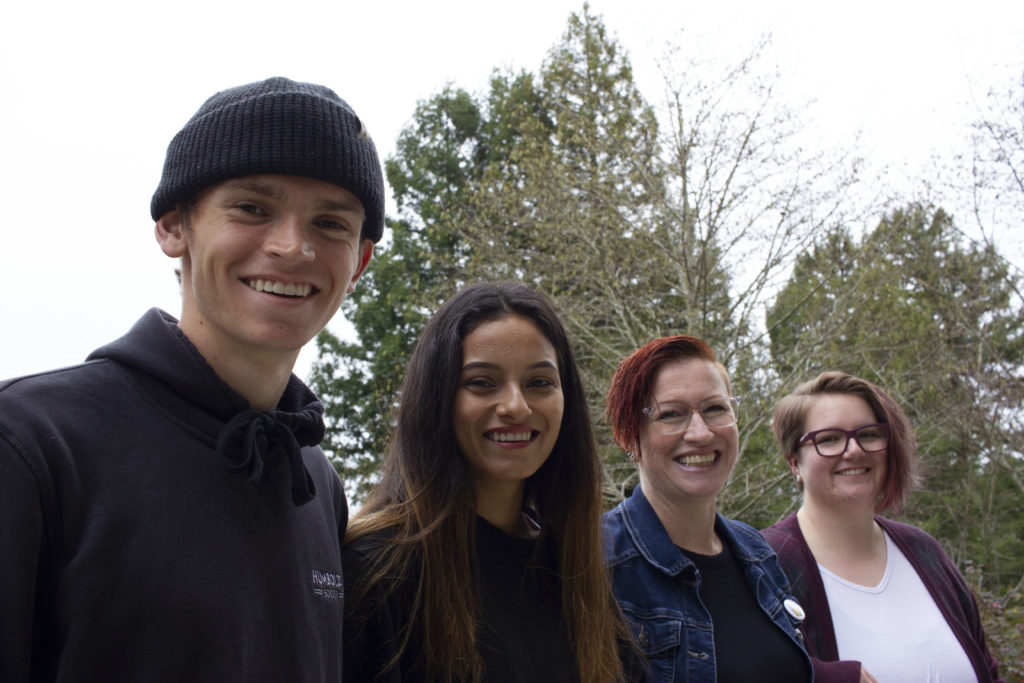HSU welcomes first sex workers’ club
The Sex Workers’ Advocacy and Support Club (SWASC), one of the only chartered clubs of its kind to exist within the California State University System, was officially established at Humboldt State University on Feb. 12.
The club, which is open to all HSU students, faculty and staff, aims to create a supportive space for students who work in the sex industry and for others who support them.
About the club
As stated on the club’s Orgsync website, the club strives to support students who work in the sex industry.
The club also aims to educate students and others on sex workers’ rights through a lens of empowerment.
Lasara Firefox Allen, club founder and president, said they have received great support from the social work department, the Student Health Center and the Clubs and Activities Office, on the creation of the club.
Decriminalization is something that I would like to see happen in my lifetime, you know, and I am personally engaged in the process of de-stigmatizing sex work on a regular basis.
Lasara Firefox Allen, club founder and president
“The mission of the club is to create a safer space for folks who are engaged in sex work to come together and find support and offer support to each other,” Allen said. “Also, to create an environment where people can feel empowered to learn more about sex work.
“By our definition, sex work is any work where the goal is the elicitation of sexual desire or the delivery of sexual satisfaction,” Allen said. “Coercion is not sex work.”
The club advisor, Assistant Professor Benjamin Graham, Ph.D., expressed why he believes the club is important to have on campus.
“I was excited to support SWASC because I felt that there are many untold stories and issues beneath the labels and policies society places on sex work. I thought this club could provide space and recognition of those perspectives,” Graham said.
“It is joining Amnesty International, the World Health Organization, Human Rights Watch, and others in the call for a deeper conversation and action plan around sex work.”
Rosa Granados, club treasurer, shared her thoughts on the club as well.
“As a group, we all have a higher voice,” Granados said. “I think, at the end of the day, having this knowledge [about sex work] can really increase your ability to understand different things in the world that do happen.”
What is sex work?
According to Allen, imagination and consent from all parties involved are the only limits of sex work.
“Sex work is a wide umbrella,” Allen said.
I think it can do a lot to raise awareness of the personal, social, and policy-level nuances to sex work that are currently silenced. It can help create a safer society, including one better positioned to combat the horrible injustice of human trafficking.
Benjamin Graham, Ph.D., assistant professor and club advisor.
Lasara shared that sex work ranges from, but is not limited to, foot or toe pictures, dancing, escorting, camming and sugaring.
“Many types of sex work are legal, and are protected under the category of free speech,” Allen said.
“One of the things that I try to do around that is I try to explain the difference between trafficking and consensual sex work,” Allen said. “I feel like as long as those two are being conflated, it’s impossible to have a real logical conversation about sex work.”
De-stigmatizing and decriminalizing sex work
Allen and their club members have many goals that they want to accomplish, some being de-stigmatizing and decriminalizing sex work.
“Decriminalization is something that I would like to see happen in my lifetime, you know, and I am personally engaged in the process of de-stigmatizing sex work on a regular basis,” Allen said.
Allen explained some reasons why decriminalizing sex work is important.
“The short answer is that criminalization disproportionately affects folks who are already marginalized,” Allen said. “It also leads to folks not seeking help when assaulted or robbed for fear of criminal charges.”
According to jurist.org, California’s Governor, Gavin Newsom, signed SB-233 that protects the rights of sex workers in certain situations.
Graham explained how the club can help de-stigmatize and decriminalize sex work.
“I think it can do a lot to raise awareness of the personal, social, and policy-level nuances to sex work that are currently silenced,” Graham said. “It can help create a safer society, including one better positioned to combat the horrible injustice of human trafficking.”

The club’s outreach
The Sex Workers’ Advocacy and Support Club has already begun outreach within the campus community.
Cristian Rios, club co-secretary, also shared the club’s plans on outreach and spreading awareness.
“We’re in contact with the sexual assault prevention committee, and we’re going to see how we can interlink our club and the committee,” Rios said.
“Just to have support available, and as well as to communicate with them, of how we can expand our club to reach a bigger audience, just so more people are aware.”
The Campus Advocacy Team and the North Coast Rape Crisis Team has reached out and offered support to the club.
Allen shared that they will be in collaboration with Peer Health Education in some of their upcoming events.
The SWASC meets Mondays at 7 p.m. in BSS-509, and more information about them, including their mission statement, can be found at https://orgsync.com/183050/chapter




